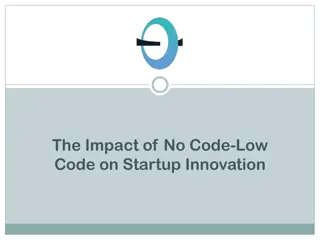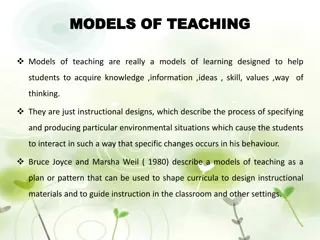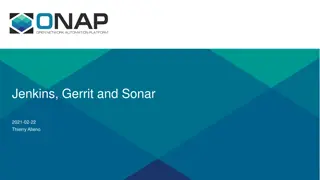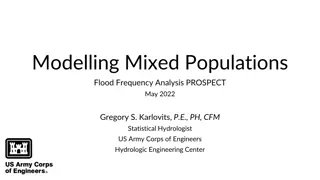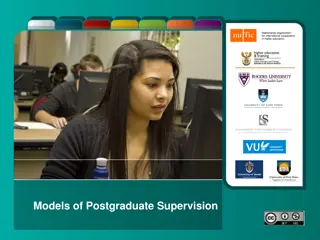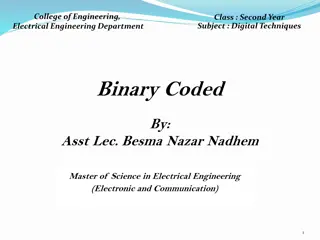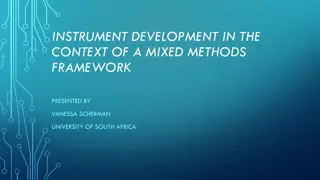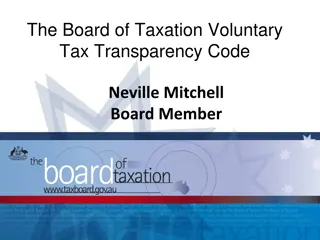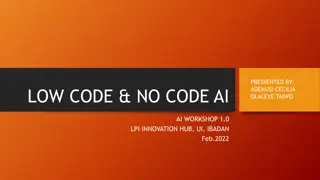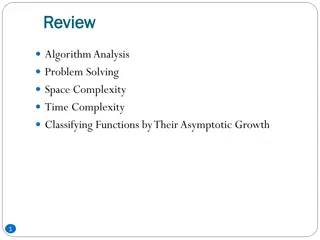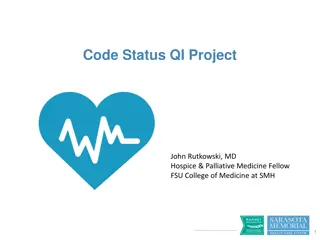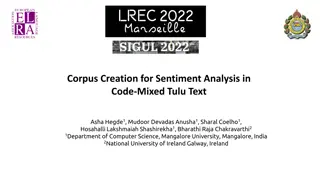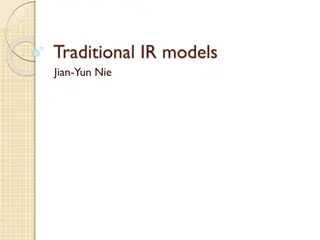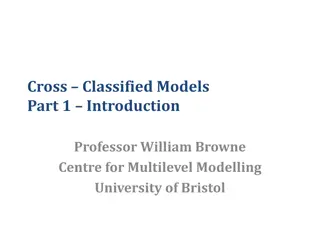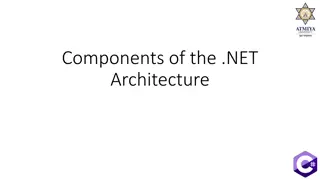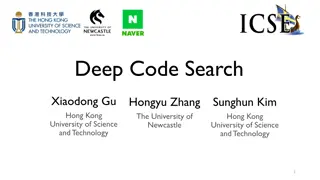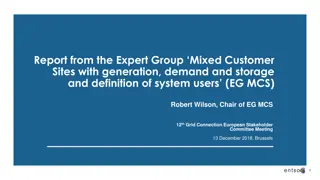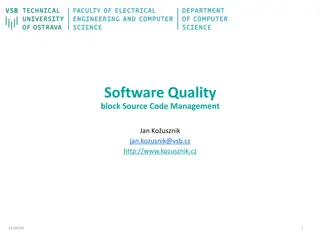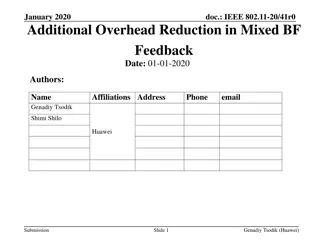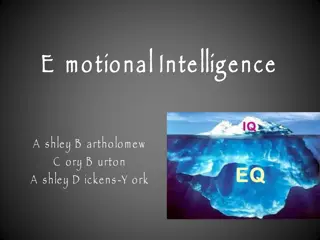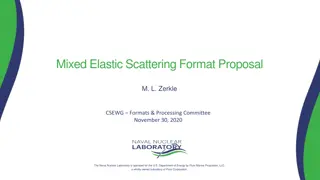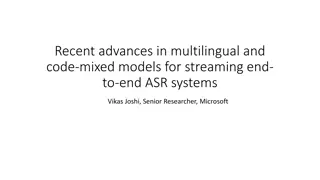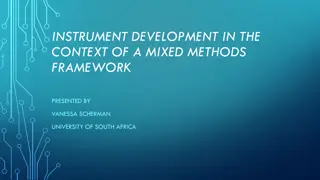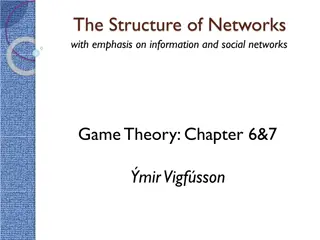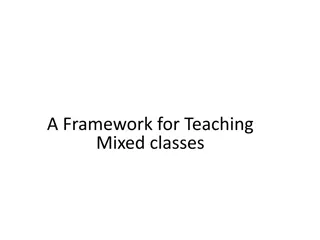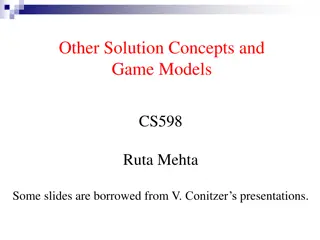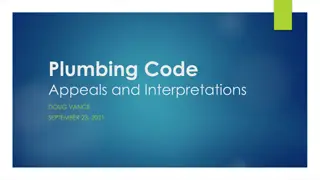Global Climate Models
Scientists simulate the climate system and project future scenarios by observing, measuring, and applying knowledge to computer models. These models represent Earth's surface and atmosphere using mathematical equations, which are converted to computer code. Supercomputers solve these equations to pr
3 views • 15 slides
System Models in Software Engineering: A Comprehensive Overview
System models play a crucial role in software engineering, aiding in understanding system functionality and communicating with customers. They include context models, behavioural models, data models, object models, and more, each offering unique perspectives on the system. Different types of system
4 views • 33 slides
Vinz Global's Expertise in Mixed Reality Game Development
The impact of Vinz Global's mixed reality & game development initiatives is evident in the immersive and engaging experiences it delivers to players worldwide. By pushing the boundaries of technology and creativity, Vinz Global inspires imagination, fosters learning, and entertains audiences of all
4 views • 4 slides
HPE P10610-001 3.84TB DS SAS-12G SC Mixed Use SFF Value SAS G9 G10 SSD
New | HPE P10610-001 | 3.84TB DS SAS-12G SC Mixed Use SFF Value SAS G9 G10 SSD | \u2713 FREE and FAST Ground Shipping across the U.S. | Best Price Guaranteed\n\nProduct Link: \/\/ \/hpe-p10610-001-3-84tb-ds-sas-12g-sc-mixed-use-sff-value-sas-g9-g10-ssd\/
1 views • 1 slides
The Impact of No Code-Low Code on Startup Innovation
In the vibrant world of startups, innovation is the cornerstone of success. As these businesses aim to carve out their niches, they often face a common hurdle: the extensive resources required for traditional software development. However, the emergence of low code no code (LCNC) platforms is revolu
2 views • 12 slides
Understanding Models of Teaching for Effective Learning
Models of teaching serve as instructional designs to facilitate students in acquiring knowledge, skills, and values by creating specific learning environments. Bruce Joyce and Marsha Weil classified teaching models into four families: Information Processing Models, Personal Models, Social Interactio
1 views • 28 slides
Improving Code Analysis Workflow with Jenkins, Sonar, and Gerrit
Enhance code analysis processes by analyzing source code before merging, enabling analysis in branches, and triggering Jenkins jobs. Sonar.cloud provides options to analyze branches using Maven build, while the proposal suggests using Jenkins plugin for code review. Addressing challenges with Gerrit
1 views • 12 slides
Understanding Mixed Populations in Flood Frequency Analysis
In this presentation by Gregory S. Karlovits, P.E., PH, CFM, a statistical hydrologist from the US Army Corps of Engineers, the focus is on modelling mixed populations in flood frequency analysis. The key topics include revisiting the IID assumption, identifying mixed populations, and building model
0 views • 38 slides
Significance of Models in Agricultural Geography
Models play a crucial role in various disciplines, including agricultural geography, by offering a simplified and hypothetical representation of complex phenomena. When used correctly, models help in understanding reality and empirical investigations, but misuse can lead to dangerous outcomes. Longm
0 views • 8 slides
Enhancing Information Retrieval with Augmented Generation Models
Augmented generation models, such as REALM and RAG, integrate retrieval and generation tasks to improve information retrieval processes. These models leverage background knowledge and language models to enhance recall and candidate generation. REALM focuses on concatenation and retrieval operations,
1 views • 9 slides
Understanding Models of Postgraduate Supervision and Different Supervisory Approaches
Explore the various roles, styles, and models of postgraduate supervision, delving into the distinctions between supervisor tasks, interaction approaches, and supervision structures. Learn how different supervision models like one-on-one, panel, project, and doctoral programme supervision impact res
1 views • 13 slides
Trigonometric Problems: Mixed, Sine and Cosine Rules
This strand delves into trigonometric problems focusing on triangles with mixed information, exploring side lengths and angle measurements beyond right-angled triangles. It covers mixed problems, sine and cosine rules, applying area of any triangle, and Heron's formula. Engage in various exercises i
0 views • 28 slides
Understanding Binary Coded Decimal (BCD) and Excess-3 Code
Binary Coded Decimal (BCD) is a binary code used to represent decimal numbers, with the popular 8421 BCD code and its conversion process explained. Additionally, Excess-3 Code, another BCD code, is detailed with an example of finding its code for a given decimal number. Different BCD codes like 4221
0 views • 11 slides
Instrument Development in the Context of Mixed Methods Framework
Explore the intricacies of instrument development within a mixed methods framework as presented by Vanessa Scherman from the University of South Africa. The overview delves into mixed methods research, methodological norms, and closing the loop in research processes. Gain insights into the pragmatic
2 views • 40 slides
A New Complaint Handling Code for the Sector - Webinar Highlights
This webinar discusses the introduction of a new Complaint Handling Code for the sector, aiming to address issues in social housing complaint processes. It covers key points, the background leading to the code's development, the Ombudsman's experience, and the code's aims and framework towards high-
0 views • 14 slides
The Board of Taxation Voluntary Tax Transparency Code Overview
The Board of Taxation developed a voluntary Tax Transparency Code to address community concerns and promote greater tax transparency among large businesses. The Code outlines recommended disclosures for both large and medium businesses, encouraging adoption of higher disclosure standards. Internatio
0 views • 20 slides
Simplifying AI Development with Low-Code and No-Code Platforms
Explore the world of low-code and no-code AI development platforms, empowering experts to create applications with ease. Learn about the benefits, tools, and components of these innovative platforms, and discover popular AI tools for no-code development. Accelerate your digital transformation journe
0 views • 11 slides
Understanding Pseudo Code and Flow Charts for Algorithm Analysis
Explore the concepts of pseudo code and flow charts for analyzing algorithms, problem-solving, and understanding space and time complexity. Learn about basic elements of pseudo code, assigning operations, and writing effective pseudo code statements in a clear and structured manner. Discover the imp
0 views • 26 slides
Enhancing Code Status Discussions in End-of-Life Care: A Quality Improvement Project
This project led by Dr. John Rutkowski aims to reduce inappropriate interventions for patients with DNR or Modified Code Status by implementing an improved code status documentation system. Data analysis reveals a need for better documentation practices, and survey responses highlight various challe
0 views • 18 slides
Corpus Creation for Sentiment Analysis in Code-Mixed Tulu Text
Sentiment Analysis using code-mixed data from social media platforms like YouTube is crucial for understanding user emotions. However, the lack of annotated code-mixed data for low-resource languages such as Tulu poses challenges. To address this gap, a trilingual code-mixed Tulu corpus with 7,171 Y
0 views • 10 slides
Understanding Information Retrieval Models and Processes
Delve into the world of information retrieval models with a focus on traditional approaches, main processes like indexing and retrieval, cases of one-term and multi-term queries, and the evolution of IR models from boolean to probabilistic and vector space models. Explore the concept of IR models, r
0 views • 65 slides
Understanding Cross-Classified Models in Multilevel Modelling
Cross-classified models in multilevel modelling involve non-hierarchical data structures where entities are classified within multiple categories. These models extend traditional nested multilevel models by accounting for complex relationships among data levels. Professor William Browne from the Uni
0 views • 13 slides
Understanding the .NET Architecture Components
The .NET architecture comprises various key components such as the Common Language Specification, Code Manager, Managed Code, Unmanaged Code, and Native Code. These components play crucial roles in the development and execution of applications within the .NET framework. Managed code is executed by t
0 views • 21 slides
Mixed Learning Resource Allocation in Decision Analytics
Explore the concept of mixed learning resource allocation in decision analytics, focusing on scenarios like using drones for oil detection, responding to natural disasters like Hurricane Sandy, and managing information states for optimal decision-making. The discussion also delves into the developme
0 views • 27 slides
Challenges in Code Search: Understanding, Matching, and Retrieval
Programming can be challenging due to the lack of experience and unfamiliar libraries. Code search engines struggle with representing complex tasks, while information retrieval techniques aim to bridge the gap between source code and natural language queries. The mismatch between high-level intent a
0 views • 21 slides
Expert Group Report on Mixed Customer Sites with Generation, Demand, and Storage
The report from the Expert Group on Mixed Customer Sites delves into the structure, meetings, and discussions regarding voltage criteria in relation to machine size, exploring challenges and proposing solutions for mixed site connections. The group emphasizes collaboration, thorough exchanges, and a
0 views • 8 slides
Software Quality and Source Code Management Best Practices
Effective source code management is crucial for software quality assurance. This involves locking down code, baselining milestones, managing code variants, and ensuring traceability. Software Configuration Management (SCM) is key, encompassing configuration items and core concepts like creating base
0 views • 34 slides
Techniques for Additional Overhead Reduction in Mixed Beamforming Feedback
Explore the properties of Mixed Beamforming (Mixed BF) and discover a method to reduce feedback size while maintaining high performance. Dive into the analysis of narrowband precoder properties to identify opportunities for size reduction without significant impact on total power. Enhance your under
0 views • 12 slides
Understanding Emotional Intelligence: Origins and Models
Emotional Intelligence (EI) revolves around perceiving, understanding, and managing emotions effectively. Originating from Darwin to modern scholars like Daniel Goleman, EI has evolved through various models such as Ability-Based EI, Trait EI, and Mixed Models. The concept gained popularity with Gol
0 views • 46 slides
Mixed Elastic Scattering Format Proposal
This proposal focuses on introducing a Mixed Elastic Scattering format to address the need for a more rigorous treatment of thermal elastic scattering effects in selected nuclides. The format extension, compatible with ENDF-6, supports advanced moderator development without impacting existing TSL ev
0 views • 6 slides
Challenges and Advances in Multilingual and Code-Mixed ASR Systems
Recent advances in multilingual and code-mixed models for streaming end-to-end ASR systems present challenges including low resource Indic language data, multiple dialects, code-mixing, and noisy environments. These challenges impact ASR modeling by causing convergence issues, higher Word Error Rate
0 views • 34 slides
Multi-Label Code Smell Detection with Hybrid Model based on Deep Learning
Code smells indicate code quality problems and the need for refactoring. This paper introduces a hybrid model for multi-label code smell detection using deep learning, achieving better results on Java projects from Github. The model extracts multi-level code representation and applies deep learning
0 views • 10 slides
Instrument Development in Mixed Methods Framework by Vanessa Scherman
Mixed methods research presented by Vanessa Scherman from the University of South Africa explores the development of instruments within a mixed methods framework. The content covers an overview of mixed methods, methodological norms, instrumental development, and closing the loop. It discusses the i
0 views • 40 slides
Understanding Mixed Strategies in Game Theory
Explore the concept of mixed strategies in game theory through examples and insights on Nash equilibrium. Discover how players randomize their actions to create uncertainty and strategic advantages. Learn how mixed equilibria are applied in real-world scenarios and how they contribute to the stabili
0 views • 46 slides
Understanding Mixed Conditionals in English Grammar
Exploring the concept of mixed conditionals in English grammar, this comprehensive guide covers different structures and uses of mixed conditionals to discuss changes in the past affecting the present and vice versa. It also delves into alternative phrases to start conditional sentences, inverted co
0 views • 11 slides
Overview of CAIN Particle Tracking Code for High-Energy Colliders
CAIN is a particle tracking code used for high-energy collider simulations since 1984. Initially named ABEL, it evolved to include beam-laser interactions for gamma-gamma colliders. The code, written in FORTRAN 90, handles beam-beam and external fields, with a structure where all particles are store
0 views • 17 slides
Understanding Composite Models in Building Complex Systems
Composite models are essential in representing complex entities by combining different types of models, such as resource allocation, transport, and assembly models. Gluing these models together allows for a comprehensive representation of systems like the milk industry, where raw materials are trans
0 views • 27 slides
Strategies for Teaching Mixed Classes: A Comprehensive Framework
Explore essential strategies and tools for effectively teaching mixed classes, ensuring both student populations benefit from instruction and contribute to the learning process. Discover non-negotiables, positive student interdependence, and insights on research findings, learning from both failures
0 views • 147 slides
Game Theory Concepts and Models in Strategic Decision-Making
Exploring various solution concepts and game models in the realm of game theory, this presentation delves into topics such as Nash equilibrium, dominance, dominant strategy equilibrium, mixed strategies, and iterated dominance. It discusses how players decide on particular equilibria, possible solut
0 views • 39 slides
Plumbing Code Appeals and Interpretations Overview
This document provides information on the agenda, upcoming professional development events, Building Code Appeal Board, Appeal Board decisions, Code Interpretation Committee, code interpretations, and final thoughts related to plumbing code appeals and interpretations. It covers the appeal process,
0 views • 8 slides




